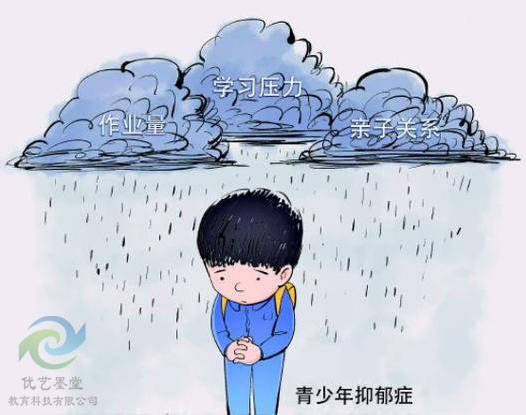In this fast-paced and high-pressure era, mental health issues among teenagers are becoming increasingly prominent, with depression emerging as an overshadowing concern that quietly looms over some young lives. When the immense pressure of academics, confusion in interpersonal relationships, and uncertainty in self-identity intertwine, some children feel compelled to hit the pause button on life, choosing to take a break from school in search of healing and reconstruction. This is a journey filled with challenges and growth, as they learn to continue moving forward while grappling with their internal “glitches.”
1. Understanding Depression: The Invisible Pain of the Soul
Depression is not merely a feeling of sadness or being “overly sensitive,” but a complex psychological disorder that silently invades a patient’s thoughts, emotions, and abilities. For adolescents in a critical growth phase, depression may stem from multiple factors such as academic pressure, family dynamics, and social anxiety. It induces persistent feelings of sadness, loss of interest, lack of energy, and even thoughts of self-denial and despair. Thus, choosing to take a break from school is often a self-protective decision made amid extreme suffering.
2. Taking a Break is Not an Escape, but a Restart
Taking a break from school does not signify giving up or avoiding problems; rather, it is an opportunity to catch one’s breath and a chance to reevaluate oneself and explore one’s inner world. During this time, children can temporarily distance themselves from suffocating environments and focus on self-healing. They may explore various avenues, such as psychological counseling, to find a recovery path that suits them. Additionally, it is a process of learning how to coexist with depression and maintain hope and resilience in adversity.
3. Living with “Glitches”: A New Philosophy of Life
As children gradually emerge from the shadows of depression and face life anew, they may realize that they can no longer return entirely to their past state. This “glitch,” while once a source of suffering, has also become a testament to their growth. They begin to accept their imperfections and understand that everyone has moments of vulnerability and needs help. More importantly, they learn how to find strength amidst these “glitches,” view the world through a lens of greater tolerance and understanding, and confront life’s challenges with resilience and courage.
4. Rebuilding Learning and Life: Slow yet Steady Steps
Returning to school or redefining one’s life path is undoubtedly a new attempt and challenge for children who took a break due to depression. They may need to start with low-intensity learning tasks to gradually build their confidence; they might also need to adjust their social circles to find friends who truly understand and support them. Throughout this process, patience, understanding, and support are crucial. Parents, teachers, and society at large should provide them with enough space and time, encouraging them to move forward at their own pace, rather than rushing for results or imposing excessive pressure.
5. Conclusion: The Radiance That Blooms in Adversity
The experience of taking a break from school due to depression, while filled with hardships and challenges, is also a valuable life lesson. It teaches children how to grow in adversity and seek hope in despair. Just like a phoenix reborn, they will emerge with greater resilience and brilliance after being tempered by stormy trials, shining with their unique light. Let us embrace a more open and inclusive mindset to understand and support these brave children, together safeguarding their inner sanctuaries.


